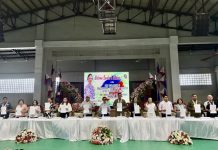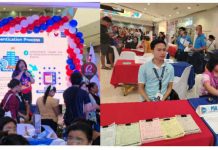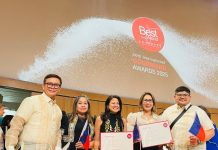
Assigned as a volunteer teacher in a Leyte school
TACLOBAN CITY – A Japanese volunteer teacher is helping public school teachers in Tanauan, Leyte by sharing her knowledge in new approaches in the areas of math and sciences to boost their competitiveness in said subjects.
Rena Takahashi is assigned at the Tanauan II Central School under the Japan International Cooperation Agency (JICA) Volunteer Program and been a volunter for over a year now.
Takahashi used to be an elementary teacher in Sapporo, Japan before coming to the Philippines, according to JICA statement.
For her two-year volunteer work, Takahashi is focusing on shifting from traditional stick-counting techniques to which students are accustomed to new approach on math and science learning used in Japanese schools.
“In Japan, emphasis is on inculcating appreciation among students on math and science and using practical methods to teach difficult subjects,” Takahashi said.
Takahashi shares that in her country, teaching science is not through lectures but through experiential learning.
The method appears to be effective as Japan school-aged students ranked as among the top in the world in science and math, based on the 2015 Trends in International Mathematics and Science Study.
Takahashi believes that teachers should devise ways on how to make children enjoy learning.
One of the techniques she is employing is the use of a calculation box which will help develop the students’ ability to calculate quickly and accurately through constant practice.
“Our teachers are using new instructional materials that they can apply in their daily math and science lessons, including variations from traditional stick-counting to using calculation boxes and hands-on science experiments,” Arnulfo Octa, principal of Tanauan II Central School, said.
The method of box frames to calculate numbers is effective since it was introduced to students as more Grades 1 to 3 students are able to have higher passing marks (93 to 96%) in addition and multiplication activities.
For the science subjects, the Japanese volunteer also organized an exposure trip of math and science teachers of the school in Japanese schools based in Manila, Planetarium, and University of the Philippines National Institute for Science and Mathematics Education Development (UP-NISMED).
“By visiting the Japanese schools in Manila, we saw best practices in classroom management, while also teaching students to become responsible and independent,” said Rhea Alkuino, a Grade 1 teacher.
Since 1960’s, JICA has been dispatching Japanese volunteers with a total of 1,669 volunteers helped support socio-economic development in the Philippines.
In Leyte, JICA focuses with particular attention to education, public health and livelihood sectors, the top priorities of the region. (ROEL T. AMAZONA)



